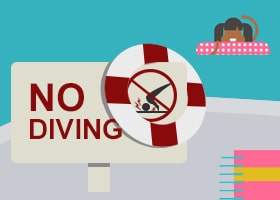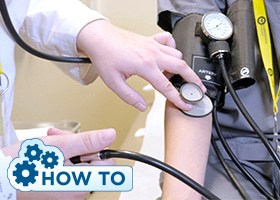Nursing is a career made for people who genuinely care for others. As a nurse, you’ll get to help people get back on their feet and cheer them on along the way. Unfortunately, you’ll also be faced with tragedy and loss. At some point you’ll have to deal with the death of a patient. 
Prepare yourself
You spend your days monitoring vital signs, administering medications and helping patients get better, so you’ll know better than most how your patient is doing. If you realize at some point a patient’s condition is deteriorating significantly, continue to help them as best you can while preparing yourself for what might happen. Death isn’t easy, but it’ll be even harder if you refuse to accept the facts. You won’t always know when a patient is near the end, but if you do, you can prepare yourself mentally and spiritually.
Know anything can happen
Sometimes a patient’s death will come without warning, or you might think the patient is doing better but all of a sudden, they’ve passed away. In situations like these it can be tough to prepare yourself, but you need to know that unfortunate things can happen. By knowing anything can happen, and sometimes patients who seem to be getting better don’t make it, you’ll mentally prepare yourself as much as possible before something happens.
Talk with the family
Once a patient passes, it can be helpful for the loved ones of the patient and the nurse to talk over what happened and why. This can be a good time to express any feelings you may have. Make sure you tell them that you’re sorry for their loss. Answer any questions they have, and direct any questions you can’t answer to the doctor. Find out if they need anything from you before you leave the bedside. Many people won’t know what to ask for, but offering to help will make sure they know you did everything you could. 
Learn to leave work at work
It isn’t easy, but when you leave work at the end of the day try to leave what happened there at the office. Sometimes it helps to work out, read a book or take a drive to clear your head. Everyone is different, and it’s important to find something that works for you. It’s important to take care of you, the nurse.
Reach out to Employee Assistance Programs
If you’re having a hard time keeping your emotions in check or notice your stress is impacting other areas of your life, ask for help. Check with your employer to see what kind of support they offer. Employee assistance programs, or EAPs, are great resources to help you get in touch with counselors, therapists and support groups. Many health care professionals have trouble dealing with the death of a patient. EAPs are designed to help you with whatever you need. According to the American Nurses Association, you can find out what EAP you have access to by contacting your state nurses associations or the state boards of nursing.2
1“Compassion Fatigue: A Nurse’s Primer” The Online Journal of Issues in Nursing, January 2011. http://www.nursingworld.org/MainMenuCategories/ANAMarketplace/ANAPeriodicals/OJIN/TableofContents/Vol-16-2011/No1-Jan-2011/Compassion-Fatigue-A-Nurses-Primer.html 2“Impaired Nurse Resource Center” Nursing World, http://www.nursingworld.org/MainMenuCategories/WorkplaceSafety/Healthy-Work-Environment/Work-Environment/ImpairedNurse



